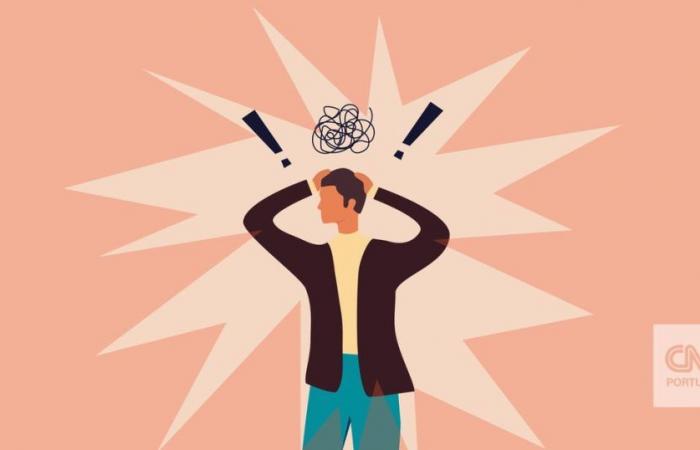To know the causes of a panic attack, it is essential to first understand what a panic attack is, as the unknown can be as threatening or more threatening as the symptom itself. A panic attack is an intense and sudden experience of extreme fear or discomfort that triggers a wide range of physical and emotional symptoms. These physical sensations are interpreted in a catastrophic way (for example, the perception of palpitations as an indication of an acute myocardial infarction), which leads to a significant increase in fear and, consequently, an increase in the intensity of symptoms. Note that a panic attack is not a disorder, but rather a symptom that can develop into a panic disorder, which is considered a psychopathology.
It is important to highlight that the panic attack lacks a very large subjectivity of symptoms, which can make it even more difficult to understand, which, in most cases, leads to discrediting and devaluing the felt experience. These behaviors can result in internalization by the person, resulting in a perception that this experience is much more threatening than it really is. Some phrases such as “let it go, it’s all in your head”, “take it easy”, “let go of those things”, among others, will only strengthen the sudden fear of a new attack and lead the person to an internal embarrassment of suffocation. existential. Despite the aforementioned subjectivity, some symptoms are more common, such as, for example, rapid heartbeat, feeling short of breath or suffocation, tremors, excessive sweating, nausea, feeling of being out of your body, fear of losing control and going crazy and even the feeling of fainting, which reinforces the unrealistic fear of losing control. During a panic attack, rapid and shallow breathing is common, which involves great physical effort, an increase in the concentration of oxygen in the body and a decrease in carbon dioxide. This imbalance leads to the appearance of the aforementioned symptoms, namely the sensation of shortness of breath and hyperventilation.
Regarding the causes, these are not fully understood, but there are several factors that can contribute to its development. This includes genetic predisposition, brain chemical imbalances, moments of
major stress, life changes and certain medical conditions. Panic attacks can occur in situations of high anxiety or at times without an apparent cause, even during sleep. They usually start abruptly and can last from a few minutes, about fifteen, up to an hour. They can also be triggered by specific situations or phobias and be associated with other psychological health disorders, such as depression, anxiety disorders and Post-Traumatic Stress Disorders, among others. It should be noted that, in some cases, the exact cause of a panic attack may not be clear and may occur spontaneously or without any apparent trigger. In other words, several types of stimuli can trigger panic attacks, from external ones, such as the situation in which the person previously experienced an attack (for example, in an elevator, in a shopping center, on the highway), to internal ones (thoughts, bodily sensations , images).
Having panic attacks can be really disabling, as you live in constant fear of these symptoms recurring.
It is important to get the message across that, although they are very scary, panic attacks do not pose a threat to a person’s life. And although the causes are not completely understood, psychotherapy and specialized help can help control symptoms, in order to reduce the frequency and intensity of attacks, thus combining well-being with a safe outlook for the future.
Suggestions
- A panic attack is a symptom and not a disorder.
- You should look for a cool and calm place.
- Studies reveal a significant improvement in symptoms when practicing regular physical activity.
- Inhale deeply and exhale slowly for a few minutes. Breathing control techniques help you breathe slowly and deeply, avoiding the high intensity of panic attack symptoms.
- Try to remain calm and positive, believing that the symptoms and discomfort will soon pass.
- Treatment essentially involves psychotherapy and, often, a combination with psychopharmacology.
- It is essential to resort to treatment as soon as possible and maintain the therapeutic plan in order to prevent relapses.
SEE TOO:
Tags: Psychologist Answers panic attack
--





